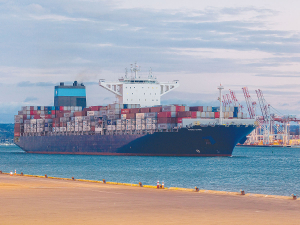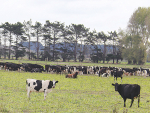OPINION: The Public Service in New Zealand between 2017 and 2023 grew rapidly from 48,000 to over 64,000, and this does not include the use of consultants.
Crown spending blew out from $76 billion per year to $139b per year between 2017 and 2023. We (the taxpayers) paid for all of this.
The new coalition government must get stuck in and reduce the cost of central government and incentivise cost reduction and political neutrality across all our large public institutions. Tackling the huge bureaucracy in our public entities will help direct taxpayer funds towards productive work where they can really lift our nation’s health, education, housing, and the wider economy.
Tackling the costs of our bureaucracy is vitally important because we import many things of use in our day to day living which we don’t produce in New Zealand, and of course these imports have to be paid for.
How do we pay for them? By selling/exporting goods or services produced in New Zealand.
Currently post the Covid 19 pandemic, we are hugely reliant on the export of primary produce to maintain an income that allows us to pay for imported goods.
Obviously whether it is an individual, a company or the government that is spending on imports, they need to earn as much as they spend to balance their obligations for payments.
Currently New Zealand has a very large gap opening between imports and exports of goods and services.
In the September 2023 quarter New Zealand exported $20.97 billion of total goods and services to the rest of the world and imported $27.82 billion, representing a negative trade balance of $6.85 billion.
We need foreign currency we earn from our exports, to pay for the things we want to import. Otherwise, the choices become increasingly precarious and/or unsustainable; like borrowing from overseas, selling assets, or printing more money (the more we print the less it’s worth).
If we run out of foreign currency through a lack of export earnings, we will soon find ourselves experiencing severe restrictions on imports. The average annual value of NZ imports per person in 2022 was just over NZ$20,000.
The bulk of what we export is derived from agriculture and photosynthesis. It’s the vast energy of sunlight combined with carbon dioxide drawn from the atmosphere to grow something, followed by varying degrees of downstream processing, and very low carbon sea transport to our customers.
Next time you’re buying an imported product think about the people who are earning New Zealand’s export income and indirectly financing your purchase.
New Zealand’s economy relies on agricultural exports for the majority of our income, yet we had a Labour government that was determined to knowingly penalise agriculture for its greenhouse gas emissions even when it was proved that the statistics they were basing their decisions on, were wrong, and the effects from farming were not as severe as had been stated.
They took this action even though the Paris Accord clearly states under article 2, that actions to combat climate change should not affect food production.
The world needs agriculture in all its different forms to ensure the population can be fed so any discussion should be based on science and include all of the relevant information that gives a realistic starting point when discussing rules around agriculture.
New Zealand produces enough food to feed about 40 million people but given our population is just 5 million most of this production is exported around the globe.
Whether we like it or not and whether we agree with it or not, it is an incontrovertible fact; agricultural exports earn the majority of our income.
This is the reason why we need agricultural exports from NZ.
Andy Loader is an executive of Primary Land Users Group (PLUG).











